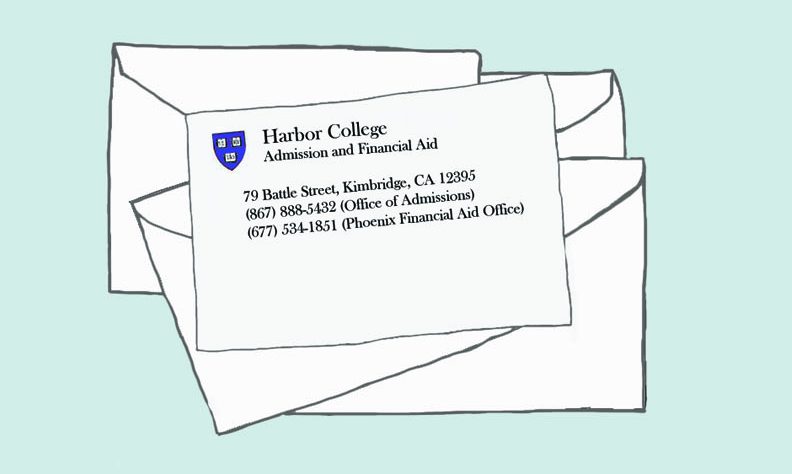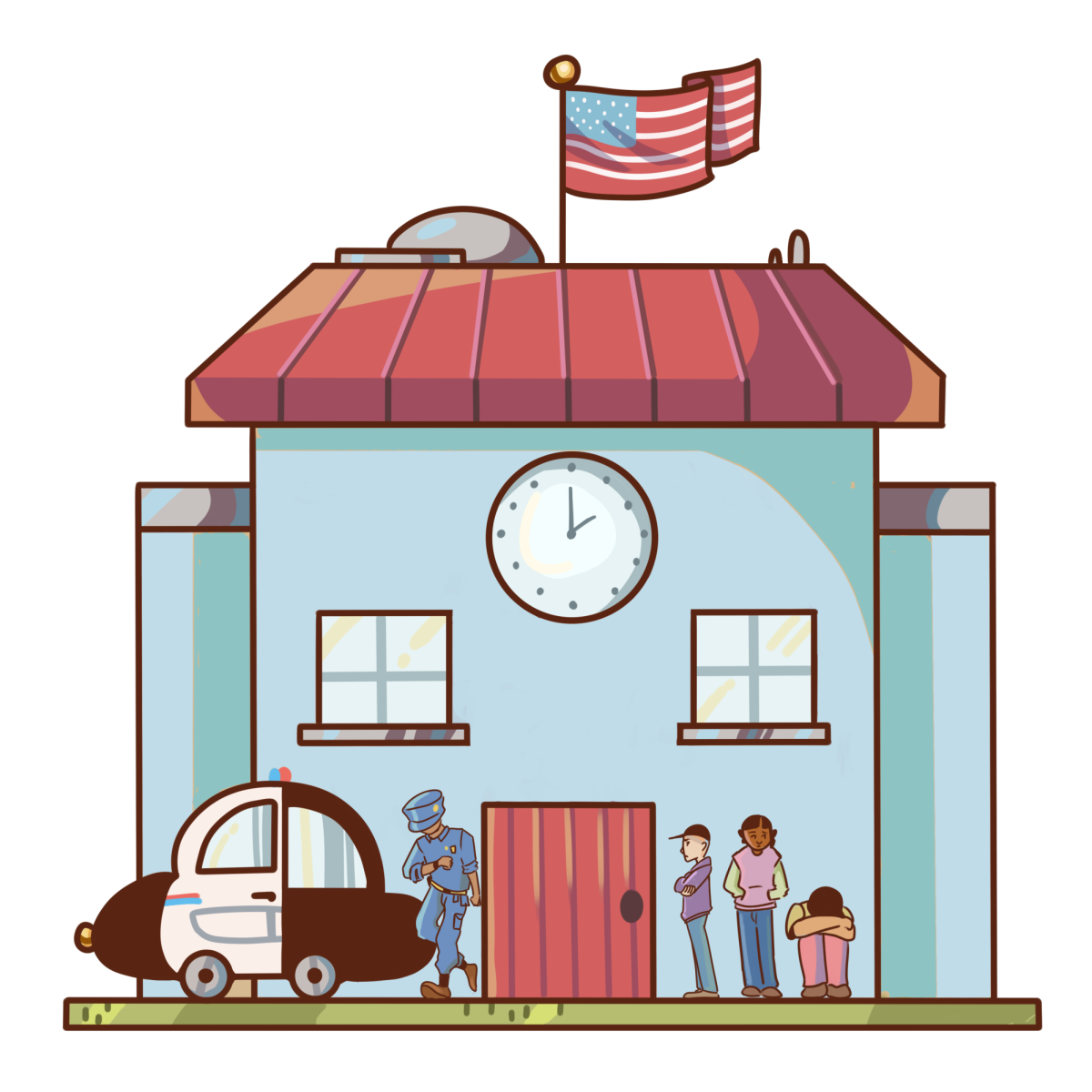Four months spent working on a two-page application. Three flights across the country to visit the school. Two dozen balloons in the college’s colors hidden in the closet. One year of envisioning his future life there. And then, Dec. 15, a button saying “application status updated” appeared across Matthew’s* computer.
His nervous smile morphed into a slight frown as the word “deferred” popped up on his screen. While thousands of thoughts rushed through his head, Matthew’s mom turned off the video camera, hugged him and said, “Don’t worry, everything happens for a reason.” Matthew said that was the last thing he wanted to hear.
People rely on clichés to console seniors throughout the college process, Matthew said. Phrases like “everyone ends up where they are supposed to” or “this is meant for the best” are often used to brighten a disappointing situation, but Matthew said he believes these expressions are unfounded and insincere.
“Anyone who says or trusts those expressions is just naive,” Matthew said. “No one can fully guarantee a good outcome, and the encouragement I’m supposed to get for believing in some greater plan does not make up for the frustration of not getting into my dream school.”
In a Chronicle poll of 139 students, 54 percent said they find superstitious comments to be unhelpful, as they can bolster the potentially misleading hope of a deferral and invalidate the hindrance of a rejection.
While Justin Spitz ’20 agrees that these phrases are cliched and often unhelpful, he said he does not perceive them as completely baseless because people often neglect the positive aspects of the decision.
“I wouldn’t say that I was happy to get deferred from my early decision school, but I do appreciate the fact that I have many other options as opposed to being locked in somewhere,” Spitz said. “Getting back the decision that I was deferred did not mean that the process was over. There are still regular decision applications that need to be carried out, so a lot of times with interviews and additional tours, one can learn about other opportunities that schools have to offer. Also, the whole system is designed so that even if you don’t get into your number one choice, there are options to back it up.”
The early decision contract is a binding agreement in which students must attend a school if they are accepted. While this option in the admissions process can improve students’ chances of acceptance, according to HuffPost. Izzy Baradaran ’20 said the contract also forces students to make premature decisions and fixate on one outcome.
“If you have a clear first choice and they have an Early Decision [or restrictive Early Action] option, you should go for it,” Baradaran said. “After not getting accepted to my early decision school, the only choice I really [had] is to make a positive out of a bad situation, but I do feel that my outcome was a blessing in disguise. I am someone who agrees that everything happens for a reason, and I definitely think I will be happier somewhere else, and hearing that from others is nice, but it gets old after a while.”
President Rick Commons said that the culture surrounding many high schools tends to be very outcome-focused, as people distill success down to external markers. Commons said that while it can hard for students to not see their college admissions outcomes as a referendum on their entire time at the school, the payoff of their education is much more valuable than any single result.
“We talk to people one year or five years out, and what they talk about is that wherever they went, the way they learned how to learn at Harvard-Westlake and the way they changed their habits of mind and the connections they made here, is what helped them be successful in whatever they did,” Commons said. “In terms of college admissions, I’m always thinking about how we can help people take the long game. Statistically, there is no evidence to support that, within the top 50 colleges or so, going to the number one or number 50 changes the financial trajectory of your life or your graduate school opportunities.”
When discussing her experience working as senior associate director of undergraduate admission and director of transfer admission at Columbia University, Head of Upper School Laura Ross said that though receiving a deferral letter can be emotional and confusing, students should not give up hope.
“When I deferred students, often they were some of my favorites who I fought for until the end,” Ross said. “Every school is different in terms of policies, but generally, schools have tried to get better about denying kids who don’t have a shot and only deferring those who they think can be competitive in the regular pool. I think people lose sight of that, but it is hard not to get disheartened. I would advise people to, if it’s still your first choice, to be communicative and make sure the admissions office knows, but to not let yourself feel discouraged by it.”
After he was deferred from his Early Decision school last year, Asher Vogel ’19 later deferred his enrollment to a different university to take a gap year, an option he said he never would have explored had he been accepted in the early round.
“Gap years were introduced to me in the best possible light,” Vogel said. “I always heard stories from older friends who would say it was the best decision they ever made, so I thought, ‘why not?’ I have no regrets throughout my college process, and I wouldn’t say that life works itself out just because of destiny, but I do believe that no matter what the outcome, there is a bright future ahead. You just have to make something out of it.”
*names have been changed











































